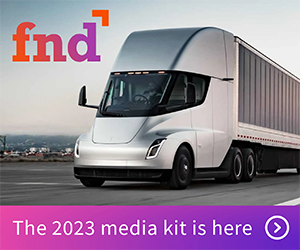Intel to Acquire Mobileye as Consolidation in Connected Fleets and Automation Continues
Consolidation is continuing in the connected fleet and autonomous driving industries as Intel Corporation (NASDAQ: INTC) and Mobileye N.V. (NYSE: MBLY) have announced a definitive agreement under which Intel would acquire Mobileye, a leader in the development of computer vision and machine learning, data analysis, localization and mapping for advanced driver assistance systems and autonomous driving.
The deal calls for a subsidiary of Intel to commence a tender offer to acquire all of the issued and outstanding ordinary shares of Mobileye for $63.54 per share in cash, representing an equity value of approximately $15.3 billion and an enterprise value of $14.7 billion.
The combination is expected to advance Intel as a leading technology provider in the fast-growing market for highly and fully autonomous vehicles. Intel estimates the vehicle systems, data and services market opportunity to be up to $70 billion by 2030. This transaction extends Intel’s strategy to invest in data-intensive market opportunities that build on the company’s strengths in computing and connectivity from the cloud, through the network, to the device.
According to Intel, “this acquisition will combine the best-in-class technologies from both companies, spanning connectivity, computer vision, data center, sensor fusion, high-performance computing, localization and mapping, machine learning and artificial intelligence.”
Going forwrd, Mobileye and Intel’s Automated Driving Group will be headquartered in Israel and led by Prof. Amnon Shashua, Mobileye’s Co-Founder, Chairman and CTO.
According to Brian Krzanich, Intel CEO, “Intel provides critical foundational technologies for autonomous driving including plotting the car’s path and making real-time driving decisions. Mobileye brings the industry’s best automotive-grade computer vision and strong momentum with automakers and suppliers. Together, we can accelerate the future of autonomous driving with improved performance in a cloud-to-car solution at a lower cost for automakers.”
As cars progress from assisted driving to fully autonomous, they are increasingly becoming data centers on wheels. Intel expects that by 2020, autonomous vehicles will generate 4,000 GB of data per day, which plays to Intel’s strengths in high-performance computing and network connectivity.
The complexity and computing power of highly and fully autonomous cars creates large-scale opportunities for high-end Intel® Xeon® processors and high-performance EyeQ®4 and EyeQ®5 SoCs, high-performance FPGAs, memory, high-bandwidth connectivity, and computer vision technology.
Category: Connected Fleet News, Featured










